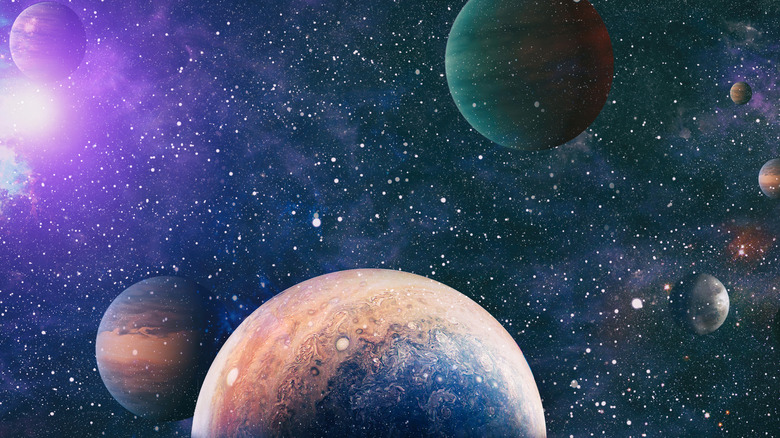Here's How Much The Milky Way Weighs
From the vantage point of Earth, our galaxy presents itself as a hazy swirl of light. It's almost milky in appearance, hence its name — the Milky Way. When we marvel at this Milky Way, we often think of it in terms of what it contains. According to current estimates, there are roughly 400 billion to 700 billion solar masses in this galaxy, per Space.
Sure, our galaxy is home to countless gasses, planets, stars, and even a jaw-dropping 5,000 solar systems (via Nine Planets). However, we must not forget that it is, of itself, an entity — not just a container for worlds, but also a world of its own. Thinking of our galaxy from this standpoint gives us a different, important perspective. It reminds us that the galaxy we inhabit is bigger than anything we really could fathom. So as a world of its own, how much does the Milky Way weigh?
The Milky Way weighs 1.5 trillion solar units
According to Far & Wide, the galaxy we call home weighs in at an astronomical 1.5 trillion solar units — a measurement that means nothing to most people. For the average, non-mathematical space enthusiast, that is like saying, "this table weighs 1.5 trillion rubber bands" or "this desk weighs 1.5 trillion colored pencils."
To give you a bit more perspective, that measurement equates to something roughly 890 billion times heavier than our sun. If you don't feel small enough when looking at the ocean or peering through a telescope, just try to imagine how small you are compared to the sun and then multiply that weight by 890 billion. How do we know it's that heavy? Like every measurement calculated in space, this is, at best, an estimate. This estimated weight was determined by the Hubble Space Telescope and the Gia Space Observatory's 2019 data report. A separate study published by the Astrophysical Journal indicates that 85% of that weight is dark matter. Given its sheer volume and mass, nobody expected it to be light.

